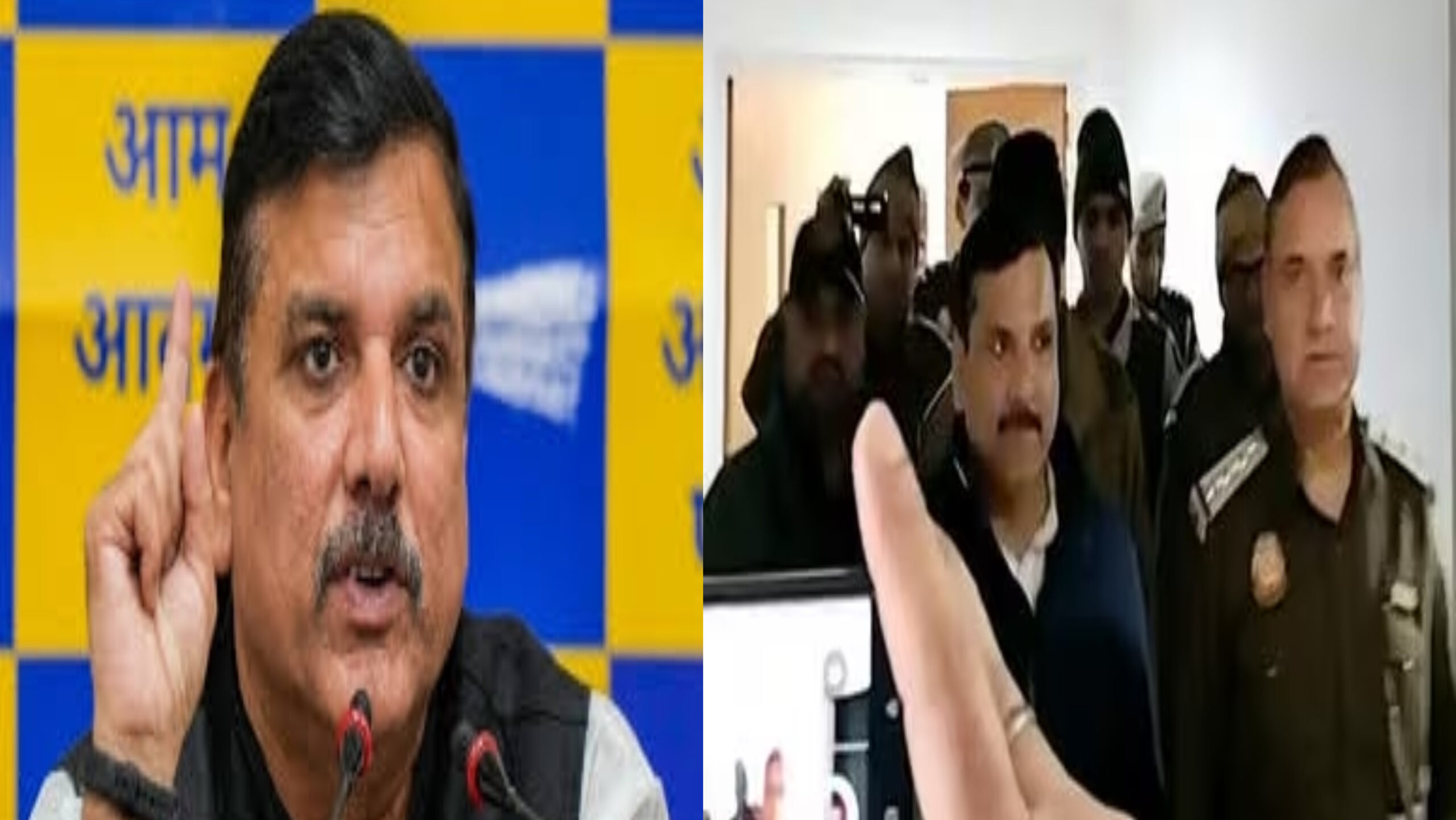In a significant development from the national capital, the Delhi court has granted Aam Aadmi Party (AAP) leader Sanjay Singh the authorization to attend the Rajya Sabha for the purpose of taking his oath as a Member of Parliament (MP). This decision allows him to participate in the official swearing-in ceremony despite his current incarceration.
Sanjay Singh, a prominent figure within the AAP, found himself in a challenging position due to his imprisonment, which stemmed from allegations related to discrepancies in the Delhi excise policy for the year 2021-22. Despite these legal hurdles, the court’s recent ruling on Tuesday has paved the way for him to fulfill his parliamentary obligations.
Initially, on Saturday, Singh received the court’s nod to visit the Rajya Sabha on February 5. However, this permission was limited, and he was not allowed to partake in the oath-taking ceremony, as this activity was not scheduled in the day’s agenda. This situation led to Singh and his legal team seeking further judicial intervention to ensure that he could officially take his oath.
Understanding the urgency and the procedural requirements of the parliamentary process, Singh’s counsel, Rajat Bharadwaj, petitioned the court for additional permissions. Bharadwaj argued for two specific days, February 8 and 9, to be allocated for Singh’s visit to the Rajya Sabha. This proposal aimed to provide a buffer, ensuring that if Singh was unable to take the oath on the first day, he would have a subsequent opportunity to do so.
In response to this appeal, Special Judge MK Nagpal evaluated the arguments presented and subsequently granted approval for Singh to take his oath. The judge’s decision was conditional, emphasizing the need for coordination between Singh’s counsel, the jail superintendent, and the Rajya Sabha secretariat to finalize the date of the visit.
Judge Nagpal’s directive also included specific instructions regarding the logistics of Singh’s visit to the Rajya Sabha. The court mandated that Singh be escorted under strict security measures, and it explicitly prohibited him from using mobile phones or engaging in communication with any accused individuals, suspects, witnesses, or members of the media during the visit. Moreover, the court allowed for the presence of Singh’s family members and legal representatives to accompany him, ensuring a support system during this critical juncture.
This court ruling came after a clarification from the office of Vice President Jagdeep Dhankhar, who also serves as the chairperson of the Rajya Sabha. The clarification addressed the confusion surrounding Singh’s inability to take his oath on February 5, noting that the ceremony was not included in the day’s official schedule. Furthermore, it was communicated that any discussions regarding Singh’s oath-taking had not reached the chairperson’s office for consideration.
The vice president’s office also highlighted that some AAP members had sought clarity on the matter, during which they were informed about the relevant rules and procedures. It was mentioned that Singh’s suspension from the previous term would continue to be in effect until reviewed by the Privilege Committee, thereby indicating that issues from his past term have no bearing on the current proceedings.
Sanjay Singh’s journey to taking his oath in the Rajya Sabha, despite his legal entanglements, underscores the intricate balance between judicial processes and parliamentary duties. This development not only reflects the legal system’s adaptability in accommodating the responsibilities of elected officials but also showcases the complexities involved in navigating the intersection of law and politics in India.
The case of Sanjay Singh is emblematic of the multifaceted challenges politicians can face when legal and political obligations intersect. The Delhi court’s decision to allow Singh to attend the Rajya Sabha to take his oath, despite his incarceration, is a testament to the judiciary’s role in upholding the democratic process. It underscores the importance of ensuring that elected representatives are able to perform their parliamentary duties, which are fundamental to the functioning of democracy.
This scenario also sheds light on the procedural intricacies within the parliamentary system, particularly regarding the scheduling and administration of oath-taking ceremonies for MPs. The oversight in scheduling Singh’s oath-taking ceremony highlighted the need for clear communication and coordination between the judiciary, the prison system, and the parliamentary secretariat. It illustrates how procedural lapses can inadvertently hinder the democratic process and the importance of resolving such issues promptly to maintain the integrity of parliamentary operations.
Furthermore, the court’s directives regarding the conditions of Singh’s visit to the Rajya Sabha—such as the prohibition on communication with the media or individuals involved in legal proceedings—reflect the judiciary’s attempt to balance the rights of the individual with the broader considerations of public interest and the integrity of the legal process.
Overall, the resolution of Sanjay Singh’s case demonstrates the resilience of democratic institutions in navigating challenges and ensuring that the principles of representation and accountability are upheld, even in complex circumstances.

